EXPRESS TRIBUNE
29th January 2018
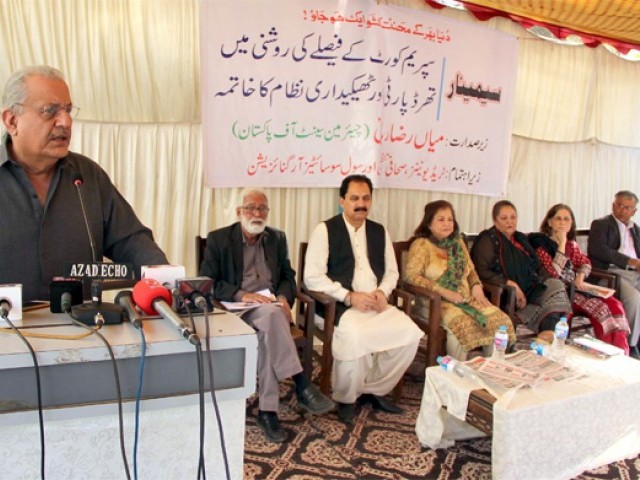
Raza Rabbani speaks at a seminar to celebrate the Surpeme Court’s December 2017 decision in which it declared the third party contract employment system illegal. PHOTO: ONLINE
Senate Chairperson Mian Raza Rabbani has called for the unity of workers and trade union leadership to ensure that they get their rights enshrined in the Constitution and stop exploitation against them.
Rabbani was speaking at a labour seminar to celebrate the Surpeme Court’s December 2017 decision in which it declared the third party contract employment system illegal. The seminar was jointly organised by the Pakistan Institute of Labour Education and Research (Piler), Democratic Workers Federation of the State Bank of Pakistan, Karachi Press Club (KPC) and other trade unions at the KPC on Sunday.
“We welcome the Supreme Court’s December 8, 2017 decision regarding third party contract employment system, but we also demand that the government implement it in letter and spirit,” the Senate chairperson said.
The state often does not listen to people’s woes and, until a big hue and cry is not raised, the state authorities remained unmoved, Rabbani lamented, adding that until the state authorities changed their mindset, the law would remain confined to law books.
Child labour: Two arrested for employing children at brick kiln
Rabbani was of the view that exploitation of the labour class by the elite and state actors intensified during the martial law regime of General Ziaul Haq, when trade unions, student unions and coffee culture were destroyed. It was the agitation from students and labourers which forced General Ayub Khan to retire and that was why General Zia’s military regime systematically destroyed labour and student unions, he said.
Rabbani recalled the time when on a single call of a labour union, the entire industry from Karachi to Peshawar used to shut down. He decried the fact that at present even a single industrial unit could not go on strike to achieve their rights.
The Senate chairperson also expressed his concern on using the Anti-Terrorism Act (ATA) against trade unions and students. A fundamentalist student organisation first unleashed terror on Baloch, Pathan and Sindhi students at Punjab University but, instead of taking action, the Punjab government arrested the victims and cases under the ATA were registered against them, Rabbani lamented.
SHC CJ wants judges, lawyers to work for health, education
Former president of the Supreme Court Bar Association Rasheed A Razvi said the SC verdict should be welcomed. He, however, maintained that many other decisions of the judiciary in similar matters had not been implemented by the respective governments. Razvi said the contractual employment was included in the definition of Payment of Wages Act, 1936. He claimed that after the 18th Amendment, provincial laws did not stop contractual employment. The judiciary had also accepted the contractual system in many cases, the lawyer said.
National Commission for Human Rights member Anis Haroon lamented that the minimum wage of Rs15,000 set by the government was not enough for a household to fulfil its need. She pointed out that still, many employers were not paying minimum wages to their workers.
Piler Executive Director Karamat Ali said 73% workers were employed under informal arrangement and, therefore, they were devoid of employment rights. No organisation is willing to give rights to its employees, he added.
Nasir Mansoor of the National Trade Union Federation complained that state agencies did not want revival of strong trade unions. Trade unionists are termed anti-state just because they demand compliance of labour laws, he said.New


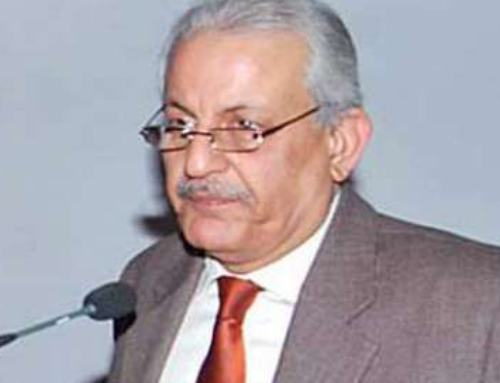

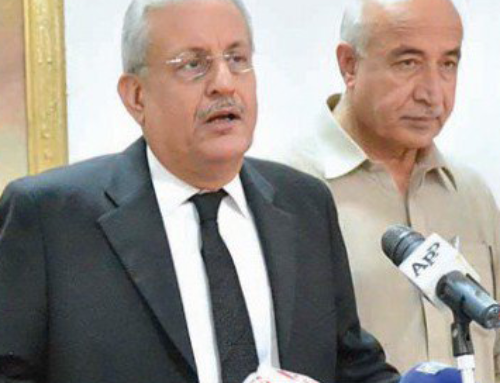
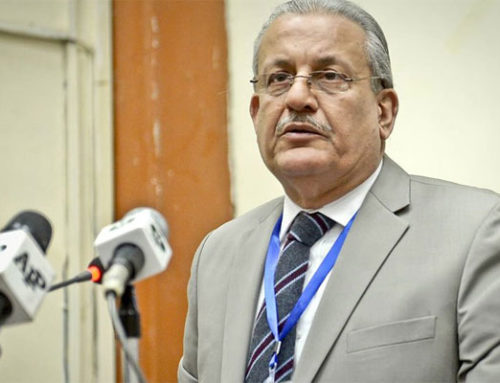
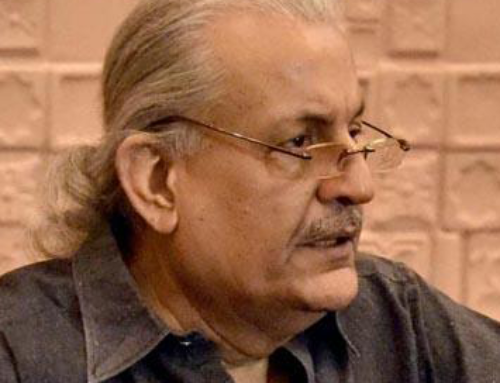
Leave A Comment